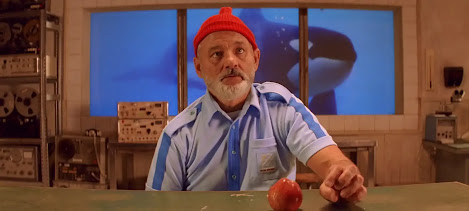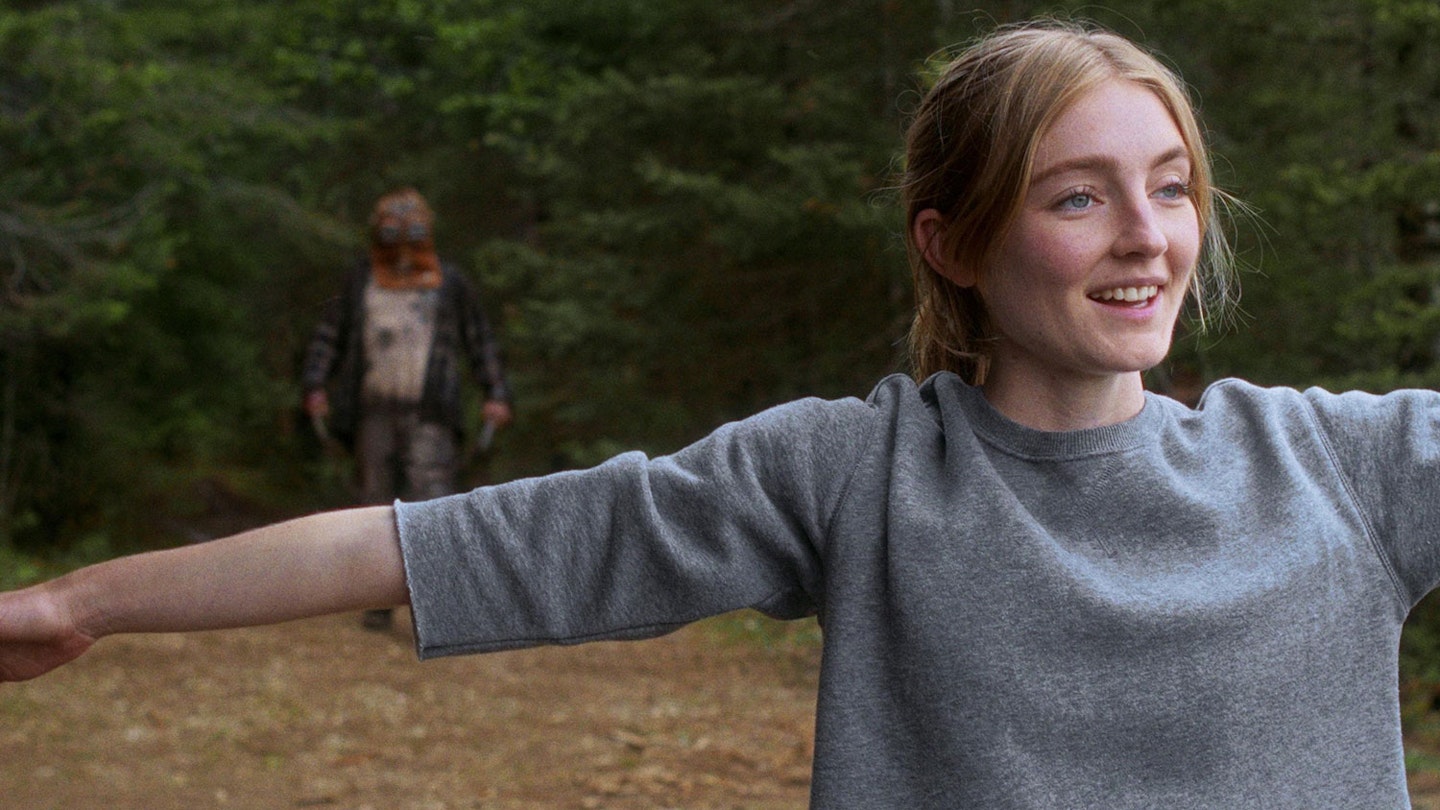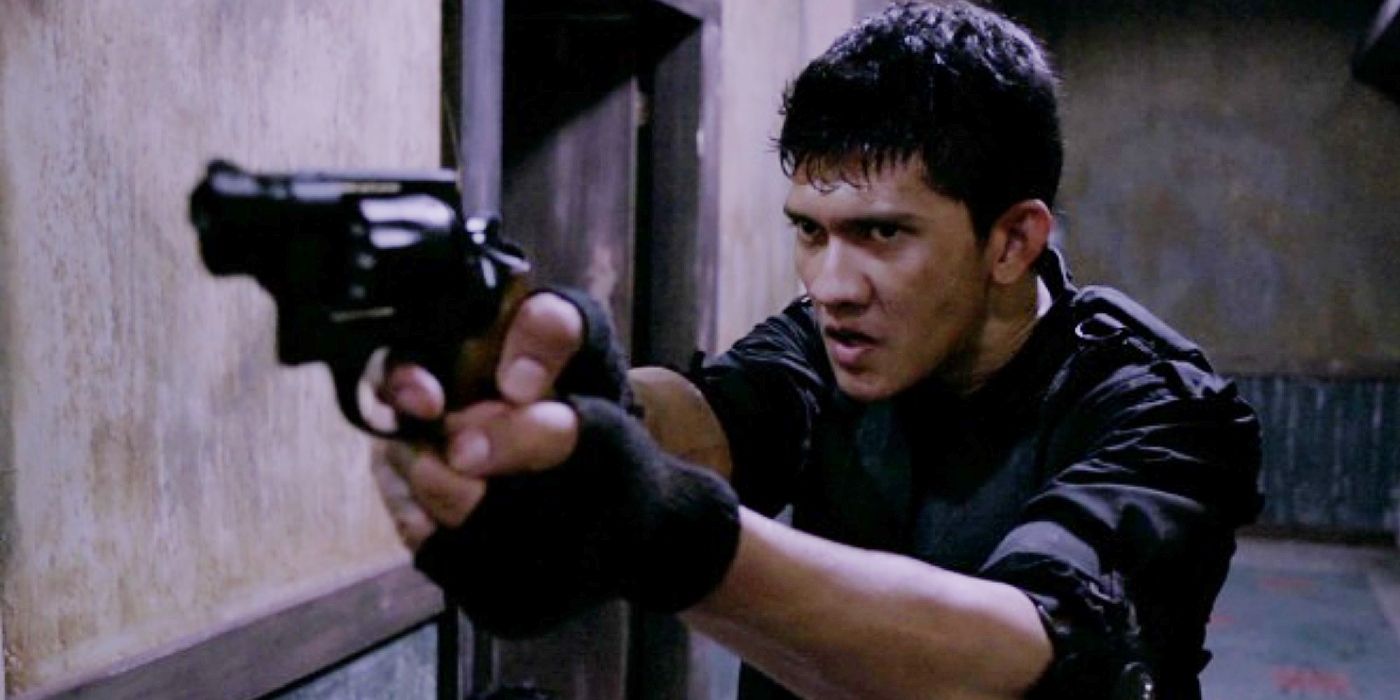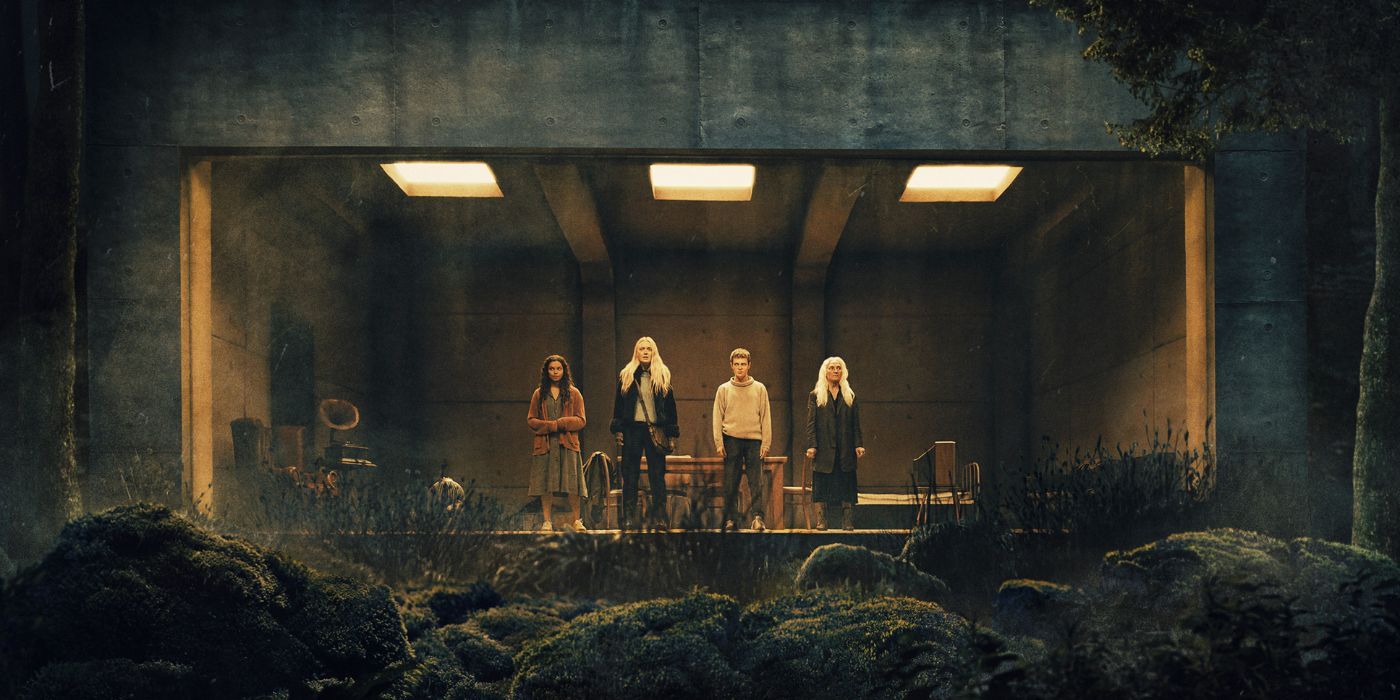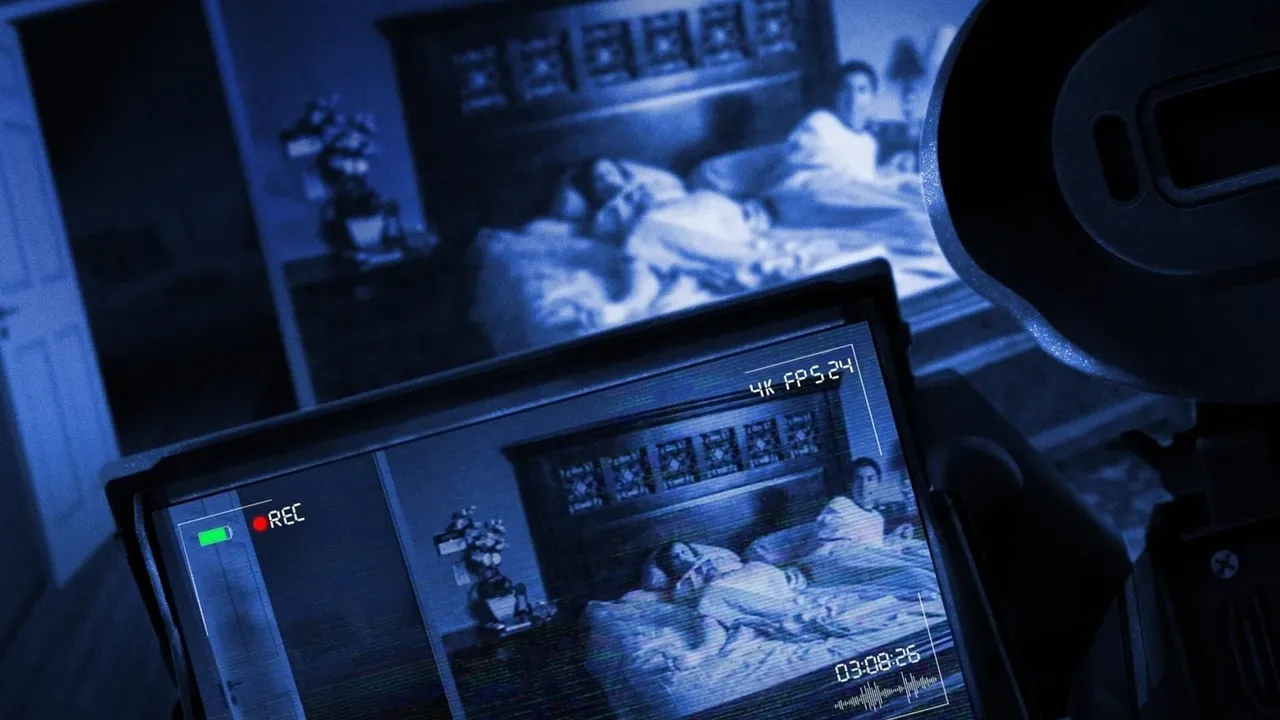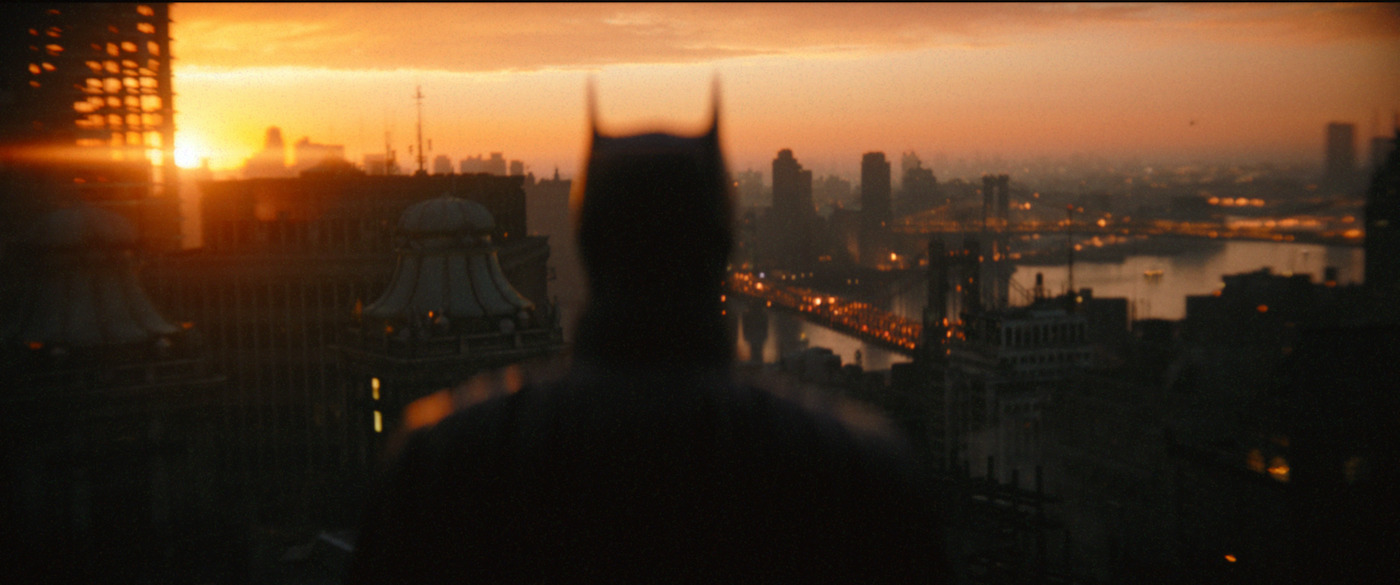If there's one recurring idea that permeates throughout the work of Wes Anderson, it's grief and the endless struggle of learning to live with it. There's always a sense of bittersweetness to his best work, which is consistently very good, and in how it approaches this struggle. More than any filmmaker, I think, Anderson's filmography is fun to go through because you watch his view on this idea grow and mature, becoming more nuanced but no less heartfelt in his unique, subtle ways. It's also fun to watch through because as he grows in maturity, he also grows in confidence and ambition, his work becoming bigger, more elaborate and with an increasingly talented ensemble in tow.
The Life Aquatic with Steve Zissou, his fourth film and the last work of his to be distributed by Disney until their buy-out of 20th Century Fox, represents Anderson's growth into one of Hollywood's most visually fascinating directors without losing the quietly sentimental spark that made him so unique.
A send-up of both the late oceanographer Jacques Costeau and of pulpy adventure stories like 20,000 Leagues Under the Seas and Moby Dick, Life Aquatic is often incredibly pleasing to look at. The film's primary setting, the Belafonte, is an elaborately designed set masquerading as the ship of the titular Steve Zissou (Bill Murray, who has honed his talent for playing morose sad sacks with a heart of gold to science at this point), and Anderson expertly introduces us to it with a loving pan through the cramped confines of the ship. We see every room, every detail, from the side, giving us an immediate sense of scale and where, exactly, everything and everyone is. Many of the film's fantastical creatures, witnessed in Steve's expeditions, are rendered through claymation, which contributes to the fantastical feel of the film. It's quickly clear that this is something bigger, a more heightened reality than Anderson's prior work, which makes the very real emotions at play hit that much harder.
At it's heart, Life Aquatic is a story about loss and learning to live with it, and that no amount of control or micro-management can do a thing about the random cruelties that life can dish out. Steve, an eccentric if charismatic oceanographer, begins the film on a quest for vengeance, hunting the rare jaguar shark that, by Steve's own words, "devoured" his lifelong best friend Esteban. While nowhere near Captain Ahab's level of fanaticism, it becomes clear that Steve's obsession with hunting the creature, potentially the only one of it's kind, is a greater attempt to lash out at the world for taking his friend from him, as he crudely announces his intention to blow up the shark with dynamite. Much like Ahab, however, Zissou drags along a crew heavily devoted to him, from the affection-starved, childishly petty first mate Klaus (Willem Dafoe) to the quiet, musically talented safety expert Pele (Seu Jeorge, who provides a series of beautiful David Bowie covers) to snarky, rarely clothed script supervisor Anne-Marie Sakowitz (Robyn Cohen), and several newcomers, like Steve's apparent son Ned Plimpton (Owen Wilson, very quietly reminding me of his underrated talents as a leading man) and hard-hitting, pregnant reporter Jane Winslett-Richardsson (Cate Blanchett), who quickly becomes an object of mutual affection for the coarse Steve and the more gentle Ned.
The film is a proper adventure romp, if a more subversive one than the traditional fare, depicting the struggles of it's eccentric, deeply dysfunctional crew in a series of mishaps. A clash with pirates is portrayed as less a tense hostage situation and more of an exasperating road bump as two equally incompetent crews run afoul of each other, while Steve's recurring rivalry with the wealthier, more suave Alistair Hennessey (Jeff Goldblum, because who else?) serves as host to a series of great set-pieces (the impromptu heist of a Hennessey laboratory got a good laugh out of me with the spiteful bluntness of it while the crew's rescue of Hennessey from the pirates makes for a surprisingly tense action sequence) with a strong emotional pay-off as the two bond over a shared experience. The cast, a mix of Anderson's usual actors and newer players who would become bigger figures down the line, have a very lived-in chemistry. They bicker, they grow closer, and the various personalities clash in both expected and unexpected ways, feeling like a very genuine found family by the film's end.
Of course, the good times can never last, and it's not a Wes Anderson film without a suitably brutal gut punch. In this case, it's Steve's pursuit of revenge for his best friend claiming the life of another loved one, as his reckless attitude and poor care for equipment causes an accident that kills Ned. It's a devastating moment, and the film's decision to first raise our hopes (Steve finds Ned floating amidst the wreckage) before crushing them (Anderson brilliantly bobbing the camera above and below the water as it gets more and more red) and then ultimately letting us sit in our grief speaks to the very real feelings that we've found ourselves developing for this larger than life characters. The message is clear: Esteban is gone, and Steve's refusal to admit that he can't bring him back has claimed Ned as well. It's in this moment that Steve, like many of Anderson's best protagonists, lets go of his grief, letting those he's lost live in heart by choosing to embrace life.
This is represented by the quietly profound encounter with the jaguar shark itself, a beautifully designed creature that swims around the submersible the crew is packed into. Face to face with the beast he's hated, Steve half-heartedly admits to being out of dynamite, and simply washes it circle them before vanishing into the depths. Eyes brimming with tears, he whispers, "I wonder if it remembers me?" While we get no answer, the point is clear: change is impersonal, uncaring as to whether or not you're "important", and while tragedy is destined to strike everyone, what matters is how you choose to live in the aftermath of it.







